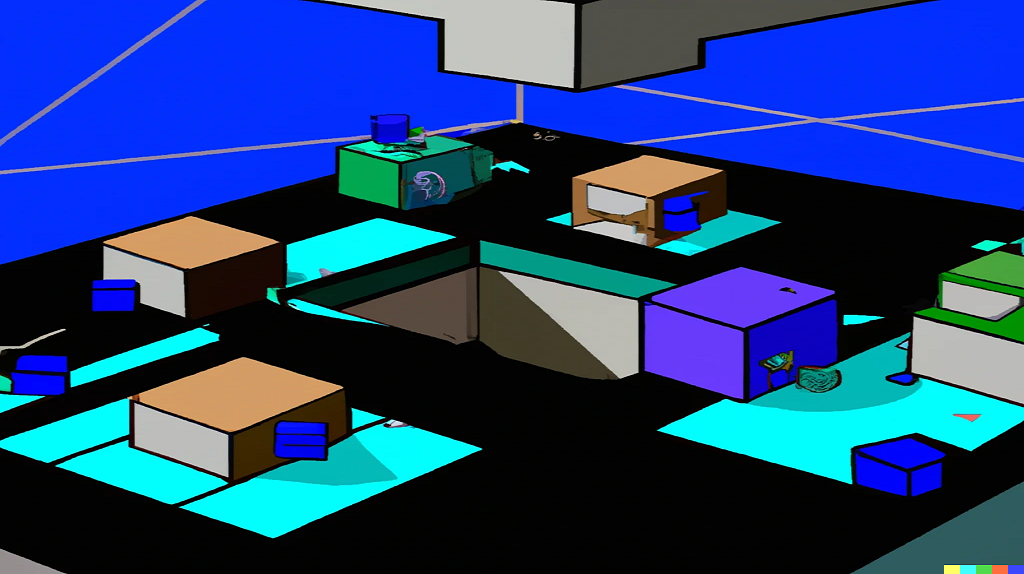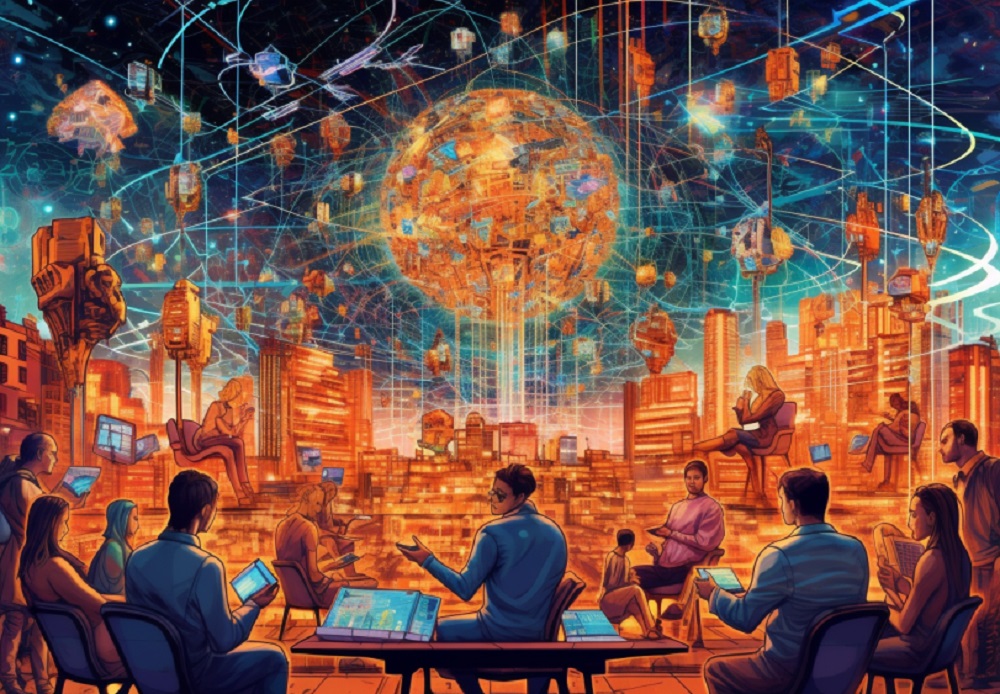The metaverse is a concept that refers to a shared virtual space where people can interact and engage in various activities, much like the real world. It is a combination of virtual reality, augmented reality, and the internet, where users can immerse themselves in digital environments and interact with others in real time. The metaverse has the potential to transform the way people work, play, and socialize, creating new opportunities for connection, creativity, and commerce.
The creation of a metaverse is a grand vision that requires overcoming many technical, social, and economic challenges. However, realizing the vision of a metaverse is not without its challenges. In this article, we will examine the challenges facing the development of a metaverse and the efforts being made to overcome them.
The following are the top 10 challenges that must be addressed for the successful implementation of a metaverse:
- Technical Challenges
The technical challenges in creating a metaverse are significant, as it requires sophisticated technology to handle vast amounts of data, graphics, and processing power. The infrastructure must be capable of supporting high-quality graphics, audio, and video, as well as low latency and high-speed connections. Additionally, it must be scalable to accommodate an increasing number of users and applications as the metaverse grows.
- Interoperability
Interoperability is a major challenge for the metaverse, as it must be able to connect multiple platforms and technologies to provide a seamless experience for users. Standardizing data and APIs is crucial, but it is also a time-consuming and complex process.
- Scalability
As the metaverse expands, it must be able to handle an increasing number of users and applications. The infrastructure must be scalable to support the growing demands of the metaverse while still providing a high-quality user experience.
- Privacy and Security
In a metaverse, privacy and security are crucial considerations. Users must trust that their data and personal information are secure. This requires a robust security infrastructure, including data encryption and authentication, to ensure that users feel confident and safe when using a metaverse.
- Monetization
For the metaverse to be sustainable, it must have a clear and effective monetization model. This requires careful consideration of the types of businesses and applications that can thrive in a metaverse, as well as the types of transactions and payments that can take place within it.
- User Experience
For the metaverse to be successful, it must provide users with an engaging and immersive experience. This requires high-quality graphics, audio, and video, as well as responsive and intuitive navigation and control. A focus on user-centered design is necessary to understand how people interact and engage with digital environments.
- Content Creation
A metaverse must have a rich and diverse collection of content to keep users engaged and entertained. This requires a vibrant ecosystem of developers and content creators who can bring new and innovative experiences to the metaverse.
- Social Interactions
The metaverse must provide opportunities for social interaction and engagement, allowing users to connect and build relationships with one another. This requires a sophisticated understanding of how people interact in virtual environments and the types of social experiences that can be created in a metaverse.
- Regulation
As the metaverse becomes more widely used, regulation and governance will be necessary to ensure that it is being used in a responsible and ethical manner. This requires careful consideration of the types of activities and behaviors that should be allowed within a metaverse, as well as the types of penalties and consequences that should be imposed for misuse.
- Economic Inclusion
The metaverse must be accessible and inclusive to individuals from all economic backgrounds. This requires a focus on affordability and accessibility, as well as education and training opportunities for individuals who may not have prior experience with virtual environments.
Bottomline, the development of a metaverse requires overcoming many technical, social, and economic challenges. Addressing these challenges will be crucial for the success of a metaverse and the creation of a fully immersive and accessible digital world.






